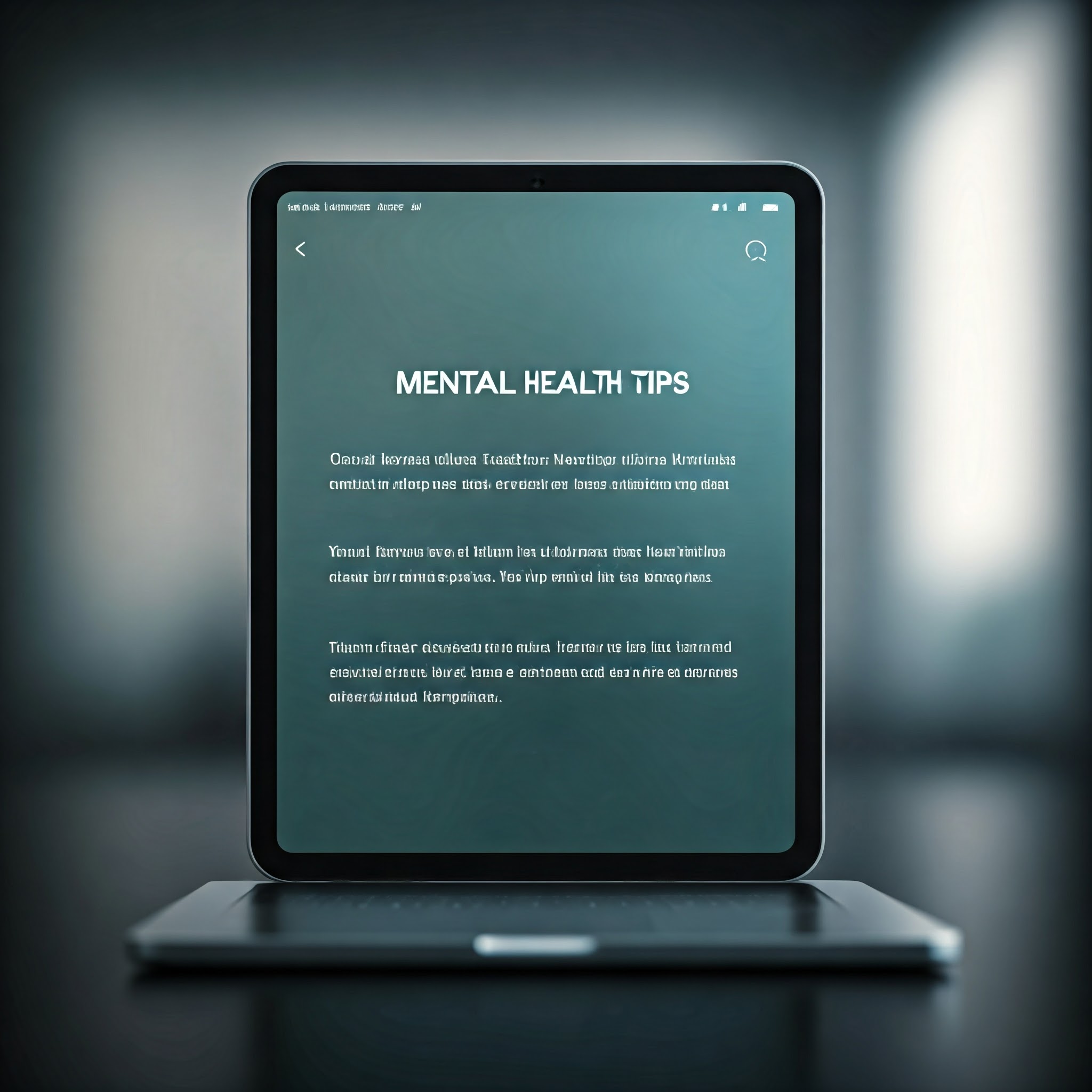
Mental Health Tips for a Better Well-Being: Fitness, Diet, and Self-Care Strategies
Introduction: Why Mental Health Matters More Than Ever
In today's fast-paced world, mental health is often put on the back burner. However, taking care of your mind is just as important as maintaining your physical health. If you’re looking for practical mental health tips for a better well-being, you’re in the right place. From fitness routines to healthy eating plans, and even self-care strategies, we’ll guide you through simple yet effective ways to nurture both your body and mind. Let's dive in!
Fitness Routines: Move Your Body, Boost Your Mind
When we think about fitness, we often focus on building muscle or shedding a few pounds. But did you know that regular exercise plays a crucial role in enhancing your mental health? The brain releases endorphins during physical activity, which help reduce stress, boost mood, and improve overall well-being.
How to Create a Personalized Fitness Plan
Creating a fitness routine that suits your individual needs is the first step. Whether you're into strength training, cardio, or flexibility exercises like yoga, choosing a workout you enjoy will keep you motivated. A beginner’s guide to yoga, for example, could be an excellent place to start if you’re new to fitness.
Affordable Fitness Equipment for Home Workouts
Don’t worry if you can't afford a gym membership. There are plenty of affordable fitness equipment options that can help you stay fit at home—dumbbells, resistance bands, or even bodyweight exercises are all great alternatives.
Healthy Eating Plans: Fuel Your Body, Feed Your Mind
Your brain needs nutrients to function properly, just like any other organ in your body. A balanced diet plays a significant role in your mental health. What you eat directly impacts your mood, energy levels, and even your ability to focus.
Top 10 Diet Tips to Maintain a Healthy Lifestyle
Want to eat better without feeling restricted? Start by incorporating a variety of whole foods like fruits, vegetables, and lean proteins. Avoid processed foods that can trigger mood swings or mental fog. Top diet trends for weight loss often focus on nutrient-dense options, like the Mediterranean or plant-based diets, which are known for their mental health benefits.
The Role of Sleep in Mental Health
It’s no secret that sleep plays a crucial role in your mental health. Poor sleep can lead to irritability, stress, and difficulty concentrating. In contrast, a solid sleep routine boosts your mood, enhances cognitive function, and increases productivity. Aim for 7–9 hours of sleep per night to feel your best.
Simple Meditation Practices: Calm Your Mind
Meditation is a powerful tool to manage stress, reduce anxiety, and improve your mental clarity. You don’t need to sit in silence for hours to benefit from meditation. Simple practices, like deep breathing exercises or guided mindfulness sessions, can help center your mind and reduce mental clutter.
Best Mindfulness Practices for Reducing Stress
Mindfulness isn’t just a buzzword—it’s a proven technique that helps you stay present, focus on the now, and reduce negative thinking patterns. Try taking a few minutes each day to practice simple meditation, like focusing on your breath, to experience the benefits for yourself.
Wellness Trends 2025: What's New in Mental Health Care?
As we approach 2025, wellness trends continue to evolve, focusing more on holistic health and mental well-being. From virtual mental health services to wellness retreats, the future is looking brighter for those seeking balance in their lives.
Self-Care Strategies for Busy Professionals
For many, balancing a busy career and personal life can feel like walking a tightrope. But self-care is essential for maintaining mental health. Whether it's scheduling regular breaks, incorporating short meditation sessions, or even practicing a gratitude journal, taking time for yourself helps you manage stress and stay productive in the long run.
Affordable Fitness Routines for Busy Professionals
Even the busiest people can find time to squeeze in a quick workout. Affordable fitness routines like 15-minute HIIT sessions, yoga, or even a brisk walk during lunch can keep your mind sharp and your body energized. No excuses—your mental health deserves it!
Conclusion: Nurture Your Mind and Body for a Balanced Life
As we’ve seen, mental health and well-being are closely tied to physical fitness, nutrition, and self-care. By following a personalized fitness plan, sticking to a healthy eating schedule, incorporating meditation into your routine, and ensuring you get enough sleep, you can improve both your physical and mental health. The key is consistency—small steps every day can lead to lasting positive changes in your life.
FAQs
1. How can I start a fitness routine if I’m a beginner?
Start with simple activities like walking, cycling, or a beginner’s yoga class. Gradually increase the intensity as your fitness level improves.
2. What are some quick self-care strategies for busy professionals?
Try taking short breaks throughout the day, practicing deep breathing, or listening to soothing music for relaxation.
3. How important is sleep for mental health?
Sleep is crucial for mental clarity, mood regulation, and overall cognitive function. Aim for 7–9 hours of sleep every night to support your mental health.
4. What are the best mindfulness practices for stress relief?
Deep breathing, meditation, and body scanning are excellent mindfulness techniques that can reduce stress and improve emotional well-being.
5. How can I make healthy eating habits a part of my daily routine?
Start by planning your meals ahead of time, incorporating a variety of fruits and vegetables, and avoiding processed foods. Consistency is key!